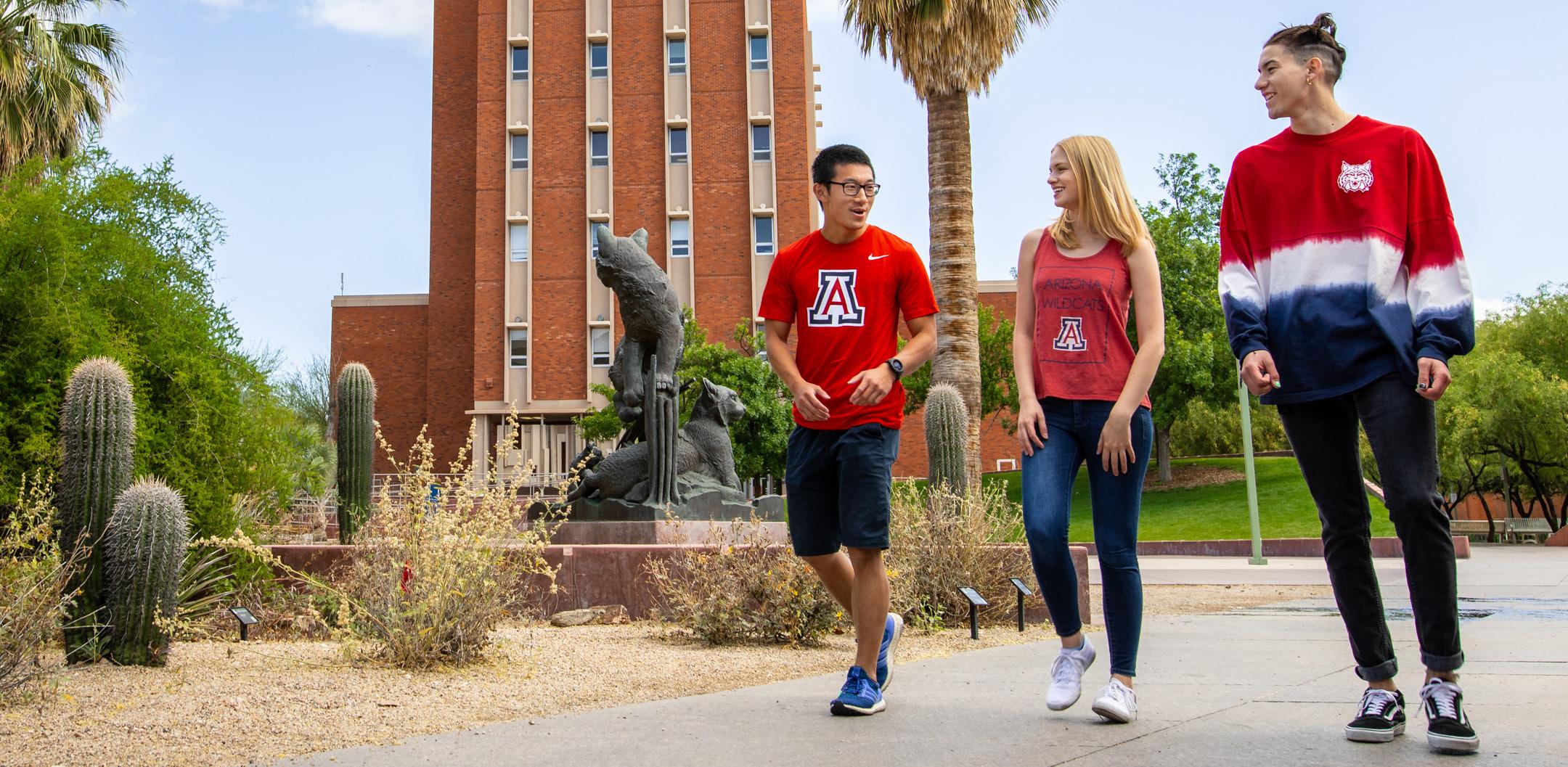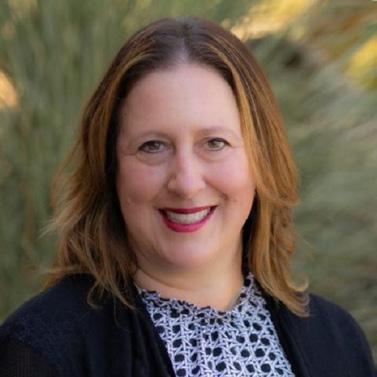UARIZONA PARTNERSHIPS






We work to investigate ideas, transform social conditions, and tell unheard stories. We prepare students, engage in research, and collaborate with community partners to address everyday challenges, be thoughtful problem-solvers, and build solidarity with others across the world. We are rooted in the unique sense of place in our Borderlands region.
Students receive a broad-based liberal arts education and engage in hands-on learning. They cultivate skills in critical thinking, problem solving, communication, and technology. These skills help them stay future-proof and shape the world.



Students can earn University of Arizona credits wherever they are in the world by studying online or by joining our partnership network. We partner with universities around the world, providing students the opportunity to earn dual degrees from Partner Universities and UArizona.

SBS’s distinguished professors include 16 Regents Professors, four Distinguished University Professors, three Distinguished Outreach Professors, three MacArthur “genius” award winners, and numerous Fulbright and Guggenheim Fellows.



Through innovative course delivery, students learn from UArizona and Partner University faculty and access resources from both institutions. Students become part of UArizona’s network of 295,000 alumni worldwide and graduate with two degrees: one from the Partner University and another from UArizona.


The University of Arizona ranks number 95 out of 20,000 schools, according to the Center for World University rankings.
Students may complete the program entirely at the Partner University or study abroad at the Tucson, Arizona campus in the United States for a semester. Our palm-tree lined campus is known as one of the most beautiful in the country.



• Communication BA in Peru
• Global Media MA in Peru
• Human Rights MA in India
• Philosophy, Politics, Economics and Law (PPEL) BA in Peru
• Law BA in China, Cambodia, and Vietnam
• Communication BA in China, Indonesia, and Cambodia
• Global Studies BA in India

• Bilingual Journalism MA in China
• Philosophy, Politics and Economics (PPE) MA in Peru


Students in the College of Social & Behavioral Sciences are equipped with a depth and breadth of knowledge to understand some of the
most pressing sociocultural, political and economic issues.
Real-World Experience
Our world-class faculty provide engaging classroom experiences, and all SBS majors offer experiential learning and internship opportunities to prepare you for your future.
Valuable Skills
SBS students gain high-demand skills that cross industries. You’ll learn how to:
• Think critically
• Write and speak with clarity
• Interact effectively with others
• Understand global perspectives
• Research problems and find solutions
• Tell digital stories using technology such as Adobe Creative Cloud
More Information
To learn more about our majors or to request information, go to sbsmajors.arizona.edu

American Indian Studies | B.A., minor
Study the languages, cultures, and sovereignty of American Indians/Alaskan
Career Pathways: Tribal Government Official, Policy Analyst, Nonprofit Organizer, Business Manager
Anthropology | B.A., B.S., minor
Explore human origins, development, behavior, and how humans interact with one another and their environment.
Career Pathways: Museum Curator, Natural and Cultural Resource Manager, International and Community Developer, Healthcare Manager
Arabic | B.A., minor
Become proficient in the Arabic language (including dialects) and obtain knowledge of Arab literature, culture, and society.
Career Pathways: Teacher, Government Official, Business Manager, International Lawyer, Translator, Tourism Director
Care, Health & Society | B.S., minor, online option
Learn about the social dimensions of healthcare and prepare for careers or further study in a variety of health-related fields.
Career Pathways: Hospital Administrator, Community Health professional, Child Life Specialist, Respiratory Therapist, Social and Health Service Manager, Occupational Therapist
Communication | B.A., minor, accelerated M.A., online option
Explore the ways human beings create, exchange, and are affected by interpersonal, mass, health, and social influence messages.
Career Pathways: Public Relations Specialist, Speech Writer, Communications Director, Event Planner, Advertising Executive
Creative Writing | B.A., minor
Study the genres of fiction, poetry, and creative non-fiction while developing skills for creative expression across written mediums.
Career Pathways: Author, Editor, Journalist, Speech Writer, Publisher, Grant Writer
Criminal Justice Studies | B.S., accelerated MPA, online option
Explore the foundations of criminal justice ranging from crime initiation to systems of punishment.
Career Pathways: Police Officer, Court Administrator, National Security Officer, Policy Analyst
English | B.A., minor
Study the foundational texts of British, American, and global literatures through textual analysis, analytical composition, and literary history.
Career Pathways: Editor, Publisher, Copy Writer, Technical Writer, Librarian
Environmental Studies | B.A., minor
Learn about human-environment interactions and environmental issues from policy and social science perspectives.
Career Pathways: Science Policy Analyst, Sustainability Specialist, Environmental Economist, Park Ranger, Environmental Lobbyist
Food Studies | B.A., minor
Learn about the social, political, environmental, and cultural dimensions of food and work to tackle food injustice.
Career Pathways: Food Writer, Restaurant Manager, Community Food Educator, Policy Analyst, Food Systems Entrepreneur
Gender & Women’s Studies | B.A., minor
Explore how gender shapes society, culture, history, economy, and political movements in the United States and around the world.
Career Pathways: Lawyer, Health Care Worker, Community Organizer, Nonprofit Director, Higher Education Administrator, Researcher
Geography | B.A., B.S., minor
Explore the environmental, social, political, and economic processes that shape places and how the places we create in turn shape our lives.
Career Pathways: International Policy Analyst, Environmental Health & Safety Officer, GIS Analyst, Land Development Project Manager, Landscape & Resource Analyst, Emergency Management Professional, Urban Sustainability Consultant, Teacher
world’s
Technology | B.S., minor, online only
Learn Cartographic Design, Computer Programming, Remote Sensing Techniques, Spatial Analysis & Modeling, & Web and Mobile Development
Career Pathways: GIS Analyst, GIS Technician, GIS Developer, Mapping Analyst
Global Studies | B.A.
Examine global issues through multiple disciplines, identify and assess global trends, and acquire skills for cross-cultural collaboration.
Career Pathways: International Trade Specialist, Relief Organization Manager, International Business Manager, Foreign Service Officer, International Development Officer
History | B.A., minor, accelerated M.A., online option
Explore the human experience in all its diversity, from the intimacies of family life to the formation of nations to the histories of transcontinental pandemics.
Career Pathways: Historian, Teacher, Archivist, Museum Curator, Lawyer
Acquire the practical capabilities that will enable you to work with an organization aligned with the principles of human rights and your own personal and professional commitments to social justice.
Career Pathways: Government, Human Rights Projects, Civil rights Organizations, Corporate Social Responsibility, Research Consultancies, Issue Advocacy
Journalism | B.A., minor, accelerated M.A. Focus on the practice of reporting, writing, editing, and disseminating news and information through newspapers, magazines, radio, television, the Internet, mobile apps, and other media.
Career Pathways: Journalist, Broadcast News Analyst, Magazine Editor, Communications Director, Foreign Correspondent
Judaic Studies | B.A., minor
Study the history, language, ethnicity, and religion of the Jewish people, one of the world’s oldest and most resilient groups.
Career Pathways: Nonprofit Manager, Educator, Program Administrator, Rabbi, International Business Manager
Explore the languages, cultures, history, and politics of Latin America.
Career Pathways: Translator, Foreign Service Officer, Historic Preservationist, Nonprofit Program Director, International Business
Law | B.A., accelerated JD, MPA, & MPP, online option
Develop critical thinking skills while studying core legal subjects and electives such as criminal law, immigration law, and international law. Law majors can apply to the College of Law and, if accepted, begin law school as seniors.

Career Pathways: Immigration Officer, Healthcare Administrator, Human Rights Advocate, Human Resources Professional, Federal Agent, Lawyer
Linguistics | B.A., minor, accelerated M.S. in Human Language Technology Study the structure of language and its relationship to cognition, culture, artificial intelligence, literature, neurology, technology, revitalization, and much more.
Career Pathways: Language Teacher, Computational Linguist, Language Revitalization Consultant, Research Scientist, Language Engineer
Our B.A. in Law provides the opportunity for an expedited path to law school.
Mexican American Studies | B.A., minor
Study the Mexican American experience as informed by the social sciences, the health sciences, history, legal studies, and the humanities.
Career Pathways: Health Professional, Entrepreneur, Civic Leader, Civil Service Professional, Nonprofit Program Manager, International Relations Specialist
Middle Eastern & North African Studies | B.A., minor, accelerated M.A.
Explore the history, cultures, languages, politics, and geography of this dynamic region.
Potential Jobs: Interpreter, Intelligence Officer, Foreign Language Teacher, Political Consultant, Cultural Advisor, International Business Manager
Philosophy | B.A., minor, accelerated M.A., online option
Explore meaning within the human experience while studying the history of philosophy and learning how to use logic and critical reasoning to communicate your ideas.
Career Pathways: Business Administrator, Lawyer, Health Care Practitioner, Ethics Officer, Corporate Mediator
Philosophy, Politics, Economics & Law | B.A., accelerated M.A. in Philosophy, Politics & Economics
Study interdisciplinary topics in small classes to develop a comprehensive understanding of social, economic, and political issues.
Career Pathways: Policy Analyst, Legislator, Campaign Director, Community Organizer, Corporate Government Liaison
Political Science | B.A., accelerated MPA, online option
Explore the processes, principles, and structures of government and of political institutions and actors in the United States and in countries around the world.
Career Pathways: Policy Analyst, Political Consultant, Community Organizer, Executive or Legislative Assistant, Foreign Service Officer
Professional & Technical Writing | B.A., minor
Learn how to communicate complex business and technical information clearly and effectively across different cultures, abilities, and genres.
Career Pathways: Technical Writer, Science Writer, Content Strategist, Project Manager, Policy Analyst
Public Management & Policy | B.S., accelerated MPA, online option
Learn how public and nonprofit organizations are managed, financed, and organized, and how public policies are made and implemented at the local, state, and federal levels.
Career Pathways: Public Administrator, Policy Analyst, Budget Coordinator, Executive or Legislative Assistant
Sociology | B.A., minor Study human society’s origins, functions, and problems, focusing on relations among people, groups, classes, organizations, and cultures.
Career Pathways: Sociologist, Demographer, Human Services Worker, Labor Relations Specialist, Community Relations Director
Studies of Global Media | B.A., accelerated M.A.,minor, online option
Explore how media utilizes technology and other tools to communicate information about societal issues, challenges, and innovations with audio, video, images, and text in contexts in Arizona, the U.S., and countries around the world.
Career Pathways: Nonprofit Organizations, Think Tanks, Government, Politics, Intergovernmental Agencies & other International Entities that Require Strong Writing, Analytical, Verbal & Research Skills
Urban & Regional Development | B.S., minor
Use geographical knowledge and technology for business, government, and nonprofit sectors and study the economic development and sustainability of our built and natural environments.
Career Pathways: Regional Planner, Land Development Project Manager, City Manager, Sustainability Specialist, GIS specialist

One



CAREER PATHWAYS


• Communications
• Journalism
• Public Relations
CORE SKILLS
• Cultural Competency
• Analytical & Critical Thinking
• Decision Making

• Problem Solving
• Research & Writing
• Intercultural Communication
The master’s in Bilingual Journalism is a cutting-edge program that offers professional and academic training for students who want to report about or for Latinx communities in the United States and abroad. Graduates will acquire a robust set of skills in both Spanish and English that will offer a significant competitive edge in any workplace. Applicants to the MA in Bilingual Journalism must speak and write English and Spanish fluently. We will also accept students who can speak and write English and Portuguese. As the program evolves, we will incorporate other languages, including Indigenous languages.




• BJP 510: Latinx & the News Media in the United States - Analyze the history of Latinxs in the United States and examine the history of Latinx, Spanish-language and bilingual news media, as well as news coverage of Latinx and Spanish-speaking communities in the United States.
• BJP 511: Global Latinx: Diasporic Transnationalism & Media in Latin America, Europe and AsiaExplore the study of migrations, diasporic transnationalism and the media in Latin America and examine historical perspectives and contemporary trends on migration from Latin America to Europe, Asia and North America (SouthNorth) as well as migrations within Latin American (South-South).
• BJP 512: Covering Latinx Affairs I: Bilingual Multimedia Reporting and Audio Production - A focus on the practice of bilingual journalism in Latinx communities. As the first in a series of two skills courses, it emphasizes bilingual multimedia writing and audio production. Working in teams, students will conduct interviews, write audio scripts and produce podcasts or radio pieces in Spanish and English—and Portuguese, when applicable. This class includes lectures, readings and practical experience in the field. To the extent possible, the classroom will function as a newsroom.
Consistently ranked in the Top 20 Communication programs in the United States



• Advertising
• Communications
• Public Relations
• Sales
• Government
• Politics
• Human Resources
• Communication
• Writing
• Interpersonal Skills
• Organizational Skills
• Problem Solving
• Intercultural Communication
• Critical thinking
• Research
• Digital Content Creation



• Teamwork & Collaboration
This major centers on the scientific study of communication, its processes, and effects. Students strengthen their ability to speak and write clearly and effectively, complete research to better understand the world around them, become critical consumers of information, and apply critical thinking skills to real-world challenges.

• COMM 402: Communication and Music - Analyzes the connections between music and Communication from a social scientific perspective. Explores the role of music as mass communication and its role in exacerbating and ameliorating intergroup conflict.
• COMM 407: Family Communication - Focuses on issues related to family interaction, functioning, communication, and dysfunction. Researches topics such as marital satisfaction, divorce, courtship, and the impact of the family on its children (and vice versa).


• COMM 408: Communication and Social Media - Examines theories and research investigating the social, psychological, political and economic implications of social media use.

• COMM 415: Nonverbal Communication - Explores theory and research on nonverbal communication codes (kinetics, touch, voice, appearance, use of space) and social functions (impression formation and management, relational communication, emotional expressions, regulation of interaction, social influence).

• Arts & Media
• Communications
• Journalism
sbs.arizona.edu
uarizonasbs
uarizonasbs
uarizonasbs
collegeofsbs


• Public Relations


• Social & Behavioral Sciences




• Analytical Thinking

• Critical Thinking
• Cultural Understanding
• Decision Making
• Intercultural Communication
• Media Literacy
• Problem Solving
• Public Speaking
• Research
• Social Awareness
• Writing and Communication
This degree perpares students to gather, analyze, and communicate information in varying cultural, political, economic, technological, legal, and societal contexts. The Global Media BA equips students with skills and tools to communicate information about societal challenges with audio, video, images, and text.
• GLO 101: Studies of Global Media: Origins & Approaches - Explore how the news media around the world shapes political, social and cultural conversations in societies and encourages governments to be transparent and accountable to citizens. Students will look behind the scenes at how journalists do their job and delve into the sometimes-deadly clash between individual expression and government control.
• GLO 301: Media, Culture and Societies - Discover historical and contemporary perspectives on the concepts of power, globalization, networked societies and diffusion of cultural values through various forms of media and how these factors influence news media reporting, digital ecosystems, discourse and communities around the world.
• GLO 460: Disinformation & Information Security in a Global Media Context - This course explores the concept of disinformation and theories of propaganda to contextualize contemporary issues in cases around the world.


• Nonprofits & NGOs



• Government
• Politics
• Intergovernmental Agencies

• Media Organizations
sbs.arizona.edu
uarizonasbs
uarizonasbs
uarizonasbs
collegeofsbs


• Writing
• Analytical Skills

• Verbal Skills
• Research Skills
Students in this program learn to critically evaluate relationships among media, the public, and policy makers during rapidly evolving events or issues to prepare them for work with domestic or global NGOs, think tanks, businesses and government agencies in support of their organizational objectives. Graduates from the Master of Arts in Studies of Global Media (GLO) will be able to research, analyze, verify and communicate information about critical and complicated global issues in an effective, ethical and culturally aware manner.


• GLO 540: Freedom of Expression and the Right to Information - Freedom of speech, freedom of the press, freedom of association and movement, and rights to public information among other rights are explored in global, regional and national contexts. This course provides historical, philosophical, legal, political, societal and cultural perspectives about values related to online and offline freedom of expression and access to public information in a global context.
• GLO 560: Disinformation & Information Security in a Global Media Context - Examine the concepts of disinformation and theories of propaganda to contextualize contemporary issues in cases around the world. Explore the growing issue of information security, public receptiveness to correcting misinformation and disinformation, surveillance tactics targeting journalists and tools for verifying information in text, images, video and audio.
• International Organizations & Business


• Foreign Affairs & Diplomacy
• Research Institutes



• Non-profit & Human Services


• National Security
• Council Government & Foreign Service
• United Nations
• Relief Organizations
• Critical thinking
• Collaboration
• Intercultural Competency
• Problem Solving
• Research Methods
• Leadership
• Adaptability
The Global Studies major is designed to help students think critically about global issues from a variety of disciplinary perspectives. The major is structured around intellectual and experiential frameworks that empower students to analyze, adapt, communicate, problem-solve, and empathize in a variety of professional and personal networks. Students have the option to specialize in one of four areas: Global Cultures, Health & Development, Political Economy or Human Rights, Migrations & Social Movements.


• GLS 250: Dimensions of Globalization: States, Societies, and Institutions - Identify and assess global trends in political, financial and social areas and become an empowered leader who communicates and inspires across cultural boundaries.
• PAH 372: Intercultural Competence : Culture, Identity, Adaptation, and Intercultural Relations - Discuss the key concepts and factors that have led to the development of the field of intercultural competence. This course also provides students with extensive background and reading so as to take a critical perspective on intercultural competence and its future for them in a globalized world.
• ANTH 407: Ethnographic Field Methods - Introduces the practice of ethnographic field research including the history of research, ethics of ethnographic study, development of research plans, methods of data collection, organization and analysis of collected data, and creation of ethnographic reports.


• Government
• Nonprofits and NGOs


• Civil Rights Organizations
• Corporate Social Responsibility
• Research Consultancies





• Issue Advocacy
• Social Justice Campaigns
• Political Affairs
• Diplomacy and International Affairs
• Legal Services
• Advocacy Skills
• Analytical Abilities

• Critical Perspectives
• Documentary Film Production
• Grant Writing
• Testimony Gathering
• Writing Competencies
The BA in Human Rights Practice prepares students to identify complex social, political, cultural, and environmental causes of human rights abuses. They evaluate and utilize practical skills for working with marginalized community members and for advancing human rights.

• HRTS 400: Community Engagement for Human Rights - Incorporates experiential opportunities for students, so they integrate theory and practice, and connect more effectively with their community. Emphasis is on developing skills and an ethos for working with marginalized community.
• HRTS 495A: Human Rights Across Contexts - Will cover a topic and how it plays out in several locations across the globe. A typical topic would be the #MeToo movement in several places or the rise of authoritarianism in different countries. This class will emphasize review of case studies on the topic and will engage practitioners and researchers who worked on the cases under study.
• HRTS 496A: Human Rights Crises - Engage in short, real-time examinations of a human rights emergency or crisis around the globe. Students learn from local activists and scholars what the issues are, how they emerged, and what activists are doing to try to incorporate human rights protections into crisis intervention and problem solving.

• Advocacy

• Law
• Social Services
• International Relations
• Communications

• Networking
• Analytical skills




• Interviewing skills
• Documentary & Media Creation
• Writing & Research
• Critical Thinking
• Addressing Trauma
• Address Corruption
• Mobilizing People
This program is designed to provide students with the foundational knowledge, critical perspectives, and practical skills to advance human rights around the globe. Students will graduate with a portfolio of applied work, a large network of contacts, and marketable skills for the practice and application of human rights. While in the program students will help produce white papers, webinars, shadow reports, and other forms of human rights work.



• HRTS 500: Advancing Human Rights - The first part of the course will focus on the history of human rights with an emphasis on the growth of international organizations for advancing human rights. The second part of the course focuses on critical skills needed to become effective human rights activists, including professional responsibility and ethics, interview skills and techniques, translating international norms into specific contexts, psychological issues such as trauma and memory, and various approaches to fieldwork.
• HRTS 501: Advancing Human Rights Organizations - Covers critical issues such as: management of resources, relationships with personnel and boards of directors, marketing human rights issues, fundraising and financial management, accountability, navigating governmental corruption, program evaluation, and delivering outputs such as shadow reports and white papers.
• HRTS 510: Advancing International Human Rights Law - Provides students with an understanding of human rights law and the means for human rights enforcement (as found in international, regional, and national processes). Students will acquire the necessary tools for promoting legislative initiatives, engaging executive actors, and bringing challenges before a range of international bodies.
First Bachelor of Arts in Law in the United States

• Legislative & Regulatory Affairs


• Education
• Human Resources
• Legal Advocacy
• Journalism
• Politics
• Law Enforcement
• Nonprofit Organizations


• Administration
• Analysis of Complex Ideas
• Writing Legal Papers & Policy Briefs
• Critical Thinking
• Evaluating Data
• High-Level Research & Writing
• Persuasion & Presentation
• Compliance & Regulatory Affairs

• Comprehension of Legal Doctrine & Procedures
sbs.arizona.edu
uarizonasbs
uarizonasbs
uarizonasbs
collegeofsbs



This degree is designed to meet the high demand for professionals with legal training across a wide spectrum of careers. Students learn foundational aspects of law, and through specialized internships hone in on areas of interest.


• POL 202: Introduction to International Relations - Study of the international system, its actors and their capabilities; ends and means of foreign policy; international tension, conflict, and cooperation.
• POL 204: Comparative Politics in the Age of Globalization - Survey of the major political systems and analysis of comparative political concepts, with a view to preparation for more advanced study.
• LAW 401: Procedure - Explore the legal process and procedures followed in our systems of civil and criminal justice.
• LAW 404: The American Public Law System - Subjects covered include the constitutional law of federalism, executive power, and civil liberties. Includes discussion about presidential war powers, the role of administrative agencies, and freedom of speech.

CAREER PATHWAYS
• Law
• Public policy
• Business
• Research Consortia

• Nonprofits & NGOs




• Government

• Logical Thinking
• Problem Solving
• Complex Conceptual Analysis
• Writing
• Economic Analysis
This major aims to promote sustained philosophical reflection on the interrelations of political, legal, and economic activities and institutions. Although students learn the basic tools of economic analysis, the major is also grounded on the humanistic tradition, encouraging analytical and critical reflection on the fundamental values that shape, or should shape, the economic, political, and legal domains.



• PPEL 326: Law and Legal Theory - Explore basic legal doctrine and legal theory in one or another central area of the law. In general, philosophical or economic analysis will be brought to bear on substantive areas of law. In a given semester, this writing-intensive course might focus on basic constitutional law and constitutional theory, basic property law and theory, the law of torts and tort theory, or criminal law and the philosophy of criminal law.
• PPEL 410: Philosophy, Politics and Economics - Introduces students to the ways in which economic analysis has been applied to issues in social philosophy and the study of politics. Game theory, axiomatic social choice theory, and public choice theory are discussed.
• PPEL 440: Justice and Welfare - Considers what constitutes a better economic distribution, or a fair way to sustain social and economic cooperation. The course centers around two broad families of approaches: those that focus on fairness or justice and those that evaluate on the basis of welfare improvements. Topics to be considered include the morality of markets, egalitarianism, the Pareto criterion, economic desert, and mutual gain.


• Law
• Public policy
• Business
• Research


• Nonprofits & NGOs




• Government
• Logical thinking
• Complex conceptual analysis
• Writing
FOR MORE INFO:
This M.A. in PPE encourages students to interrogate the philosophical underpinnings of modern economics and explore the ways tools from the social sciences can fruitfully address foundational questions in political philosophy and politics. The program provides cutting-edge instruction by some of the world’s leading scholars in philosophy, politics, and economics. This program is designed to equip future leaders who can bridge these fields and create future scholars who can explore the complexities of this nexus.


• PPEL 501: Fundamentals of Economics - An advanced level introduction to mathematical theories developed for and central in the social sciences, especially those parts of the social sciences that analyze individual and group decisions.
• PPEL 520: Economic Analysis of Law - This class uses the basic concepts and tools of economics to address questions such as: What is the proper role for democratic legislatures, courts, markets, federalism, and civil society? Which institutional arrangements allow a society to organize most productively, and why do many countries lack those institutions?
• PPEL 530: Data Science for Social Sciences - Introduces students to statistical methods applicable to the study of problems in political economy.
• PPEL 555: Choice, Evolution & Institutions - An advanced level study to contemporary analysis of institutions and how institutions can solve, or fail to solve, problems of public choice.



